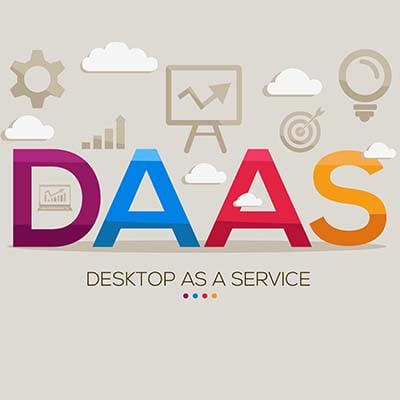SCW Blog
TV shows and movies captivate people of all ages, walks of life, and socio-economic backgrounds. They can put viewers in places in time and situations that they could only dream about. Like many things in our society, there are varying roles that technology plays in the entertainment industry. Let’s take a look at the role technology plays in the creation of the entertainment that we enjoy every day.
Most businesses leverage the cloud in at least some capacity, whether cloud-based apps or cloud-based infrastructure. In any case, using the cloud comes with inherent security questions that must be addressed during the planning, implementation, and launch phases of any solution. Let’s go over some of the ways you might protect data and applications stored in the cloud.
Technology has become a fundamental need for businesses of all sizes, with even small businesses needing to seek out options to cover their shifting needs. Fortunately, this technology has also become more reliable and readily available…and as a result, small businesses have more opportunities than ever to give their operations a welcome boost.
Cloud-hosted computing has been around for quite some time, but it has never been as accessible as it is today. It is now a commonly used resource for almost any type of business. In fact, the growth of cloud-based computing suggests that we are staring at a cloud-hosted future. Today, we wanted to discuss the cloud and how it has become the go-to solution for growing businesses.
The cloud can be a tricky beast to tame for your business, and it is mostly because of all the options you have at your fingertips to help your organization be as successful as possible with it. Let’s discuss some of the questions you need to ask to ensure you get the best value out of your cloud-based solutions.
The cloud provides businesses with all kinds of ways to be more productive throughout the workday, and while it’s great in most cases for companies that want to be more intentional with their infrastructures and budgets, there are certain cloud solutions that will be effective no matter what industry or professional endeavors you pursue.
Exploring how to fuel your business’ data needs typically comes down to whether or not you have the outstanding capital to purchase and manage your own IT infrastructure or if you are looking to utilize utility computing in the cloud to facilitate all of your business’ IT needs. This week, we thought we’d briefly discuss the pros and cons of cloud computing for your business and how much money, if any, moving to the cloud can save you.
Cloud computing has been a major topic of discussion in the business world, but many IT professionals have been skeptical of the practice over the years due to security concerns and issues with management. However, technology advancements have allowed businesses to implement cloud computing in previously unforeseen ways, leading to more convenient, flexible, and affordable solutions as a whole.
Your desktop infrastructure is one of the most important parts of your organization, and there are several ways to manage it. One way is through Desktop-as-a-Service, an option that can help you move away from the traditional workstation and embrace a new technology management philosophy. How might you get value out of this service? Let’s take a look at what makes DaaS so special.
If you have to rely on remote workers as a small business, you might fear what they represent to your operations: a lack of control, security challenges, and of course, productivity issues. However, in today’s remote workplace, it is important to acknowledge that remote workers played a critical role in saving countless organizations throughout the course of the pandemic.
The cloud has provided organizations with countless ways to innovate and improve operations, but for those who are just now jumping on this great opportunity, you might have some questions about how to get the most out of the cloud or how to even get started. Let’s discuss some of the major benefits of cloud computing, as well as why it’s critical to consider it in the years to come.
Each business uses a certain amount of technology to get things done, but today, no technology is as important to businesses as the Internet. You’ve begun to see businesses of all sizes spending thousands of dollars a month on Software-as-a-Service platforms designed to get workers the tools they need without placing undue pressure on a company’s capital budget. Today, we will talk about another cloud-based platform that is growing rapidly: Infrastructure-as-a-Service.
Business workforces are shifting and it’s undeniable that a business’ IT has to shift with it. This can leave users maneuvering through their day using all types of different tools. This can tax an IT administrator. One solution that can be used for several purposes and can help almost any project-fueled business is Microsoft SharePoint. Today, we talk about the positive effect SharePoint can have.
If COVID-19 didn’t already jam up your business’ progress enough after five months, it seems as though the new normal is going to include replacing onsite hardware with cloud-based alternatives. At first glance, the presence of hosted platforms comes as a godsend to the business who doesn’t want to commit large amounts of capital to a hardware refresh. The cost of cloud computing, however, could actually be a major problem for your business. Today, we’ll take a brief look at the hardware choices you have and where the value comes from.
The cloud has proven exceptionally useful to businesses in a variety of ways, as it offers a means for these businesses to continue accessing their crucial tools and solutions. Let’s examine a few utilities that your organization could receive via cloud services, and how they would benefit your processes.
Most businesses today use cloud computing in one way or another. As people have been working from home, the value of cloud-based platforms has been noticed by new organizations of all types. With some businesses having seen significant cost reduction with their workforce dispersed, investing in cloud computing is being suggested by industry professionals to enhance access for remote workers. Today, we’ll take a look at the cloud migration process and how moving some platforms to the cloud is the logical next step for some businesses.
Cloud computing has seen momentous growth over the past decade, but despite this, many business decision makers have been resistant to the change. However, with stay-at-home orders now keeping employees at home for months at a time, the cloud is swiftly becoming the best option to fulfill many of their needs. Let’s review how businesses can use the cloud to present solutions to solve potential problems.
In the modern workplace, collaboration plays a critical role. Successful businesses depend on a collaborative effort to create their products or deploy their services. With the world on pause because of the COVID-19 pandemic, cloud computing has strong and useful tools for businesses for its cost effectiveness and its ability to support remote workers. Today, we are going to look at some of the cloud-based collaboration tools businesses are using to keep their businesses in action.




















